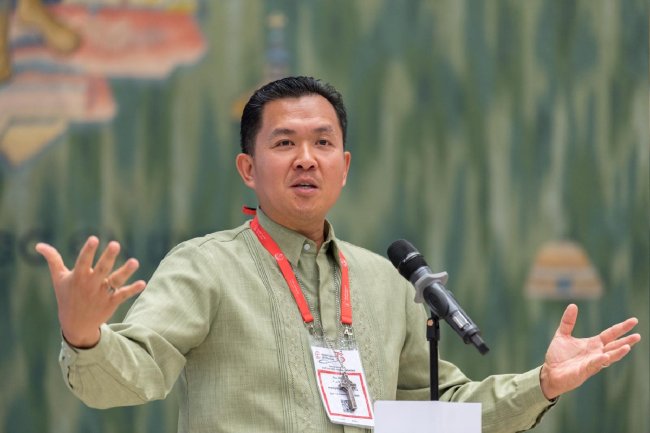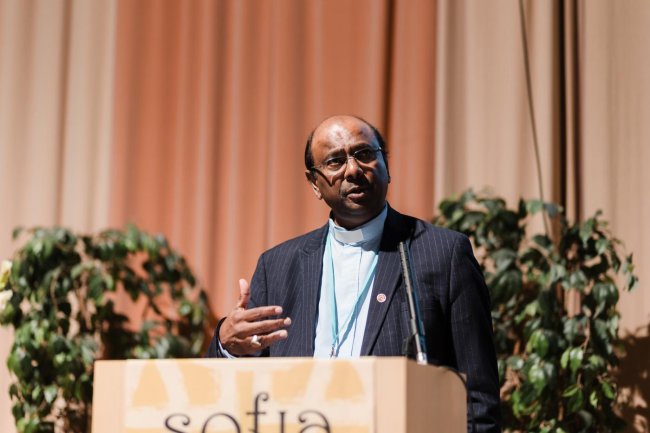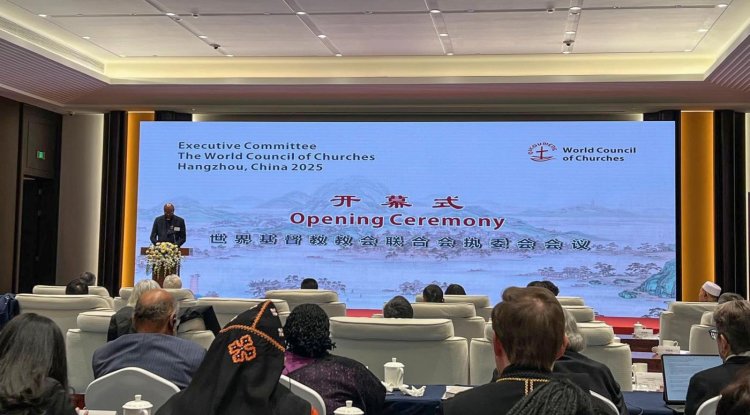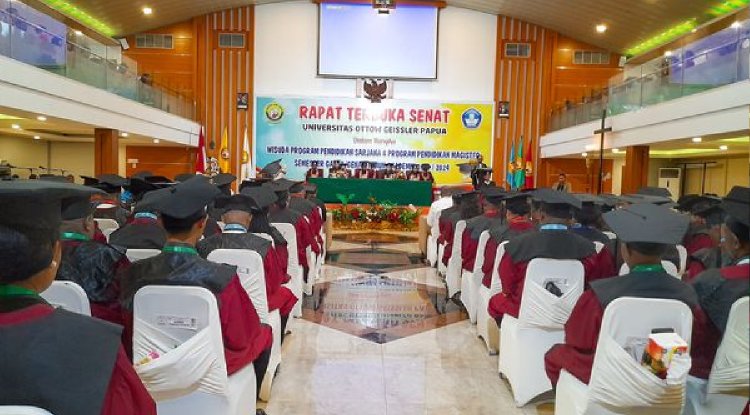EUROPEAN AI CONFERENCE OPENS WITH THE QUESTION “WHAT IS TRUTH?”
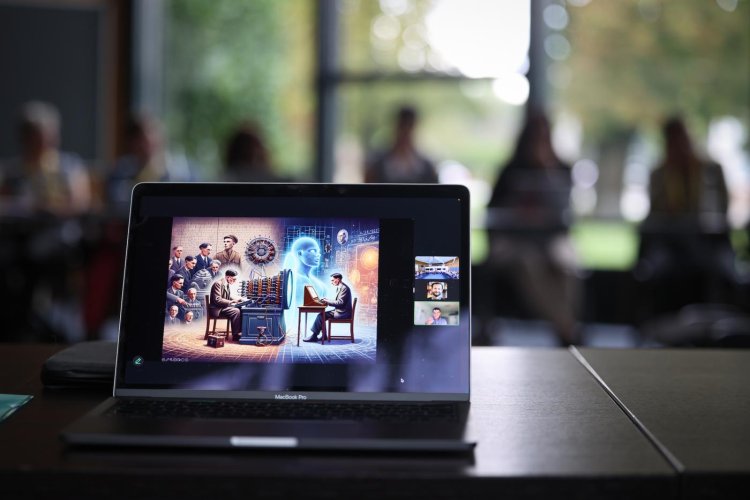
The European Christian Internet Conference (ECIC) officially opened on September 9, under the main theme "What Is Truth? Ethical and Practical Issues in the Use of Artificial Intelligence." The event brought together speakers from diverse backgrounds to share their insights on the ethical and technological challenges in a rapidly changing world.
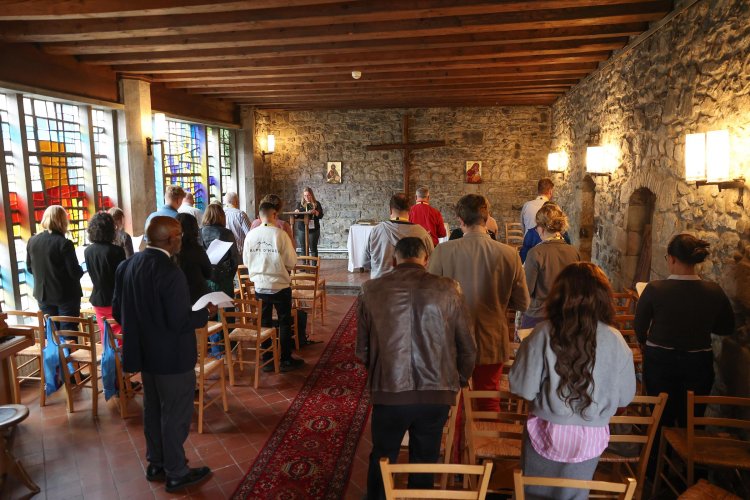
She also highlighted the ethical and practical challenges surrounding the development of AI. "That’s why our work is so important. We are called to critique and oversee how AI and digital technologies are used," she continued. She stressed the need to advocate for transparency, fairness, and accountability in the use of technology, ensuring its application aligns with Christian values, respects creation, serves humanity, and upholds justice.
In her remarks, Marianne Ejdersten, Director of Communications at the World Council of Churches (WCC), underscored the transformation that digital technologies bring to daily life. "These technologies offer us new ways to communicate, access information, and advocate for human dignity and rights," said Ejdersten. She hoped the conference would foster critical thinking and ensure that AI development ultimately serves humanity and peace.
Future Opportunities and Cautions
On the first day of the conference, two keynote speeches were delivered to open deeper discussions on methodologies, communication, and technology.
Dr. George Zarkadakis, author and chief innovation officer at Syndesis Health Inc., gave a keynote titled “Gods, Robots, and Theory of Mind: How AI Is Unlike Anything We’ve Ever Made.” In his talk, Zarkadakis traced the long history of the idea that inanimate objects could possess agency, from prehistoric times to the birth of AI in the 20th century. "AI is a technology that can transform humanity into a meta-species that transcends physical limits," he said, emphasizing AI’s potential to give humans god-like abilities.
Zarkadakis also pointed out real possibilities that were once confined to science fiction, such as self-cancellation, reconstructing oneself as data, and transferring consciousness. "Humans have now become part of the machine," he said, expressing concerns about the societal impact of AI’s advancement.
Prof. Dr. Holger Sievert, professor of Media Management at the Cologne Campus, offered insights on how large European churches are engaging with AI. Based on a survey of nearly 1,500 church employees, Sievert found that digitalization is increasingly embraced by church communities. "Online services remain popular even after the COVID-19 pandemic," he said.
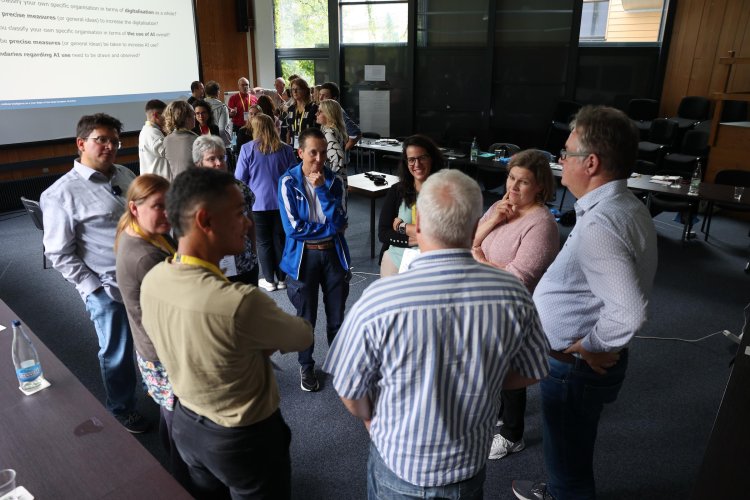
Interestingly, he noted that church members in Germany are adopting digitalization faster than the general population. For instance, in 2022, 25% of the German population used Facebook daily, while 60% of church members preferred Instagram as their primary platform.
Sievert concluded by saying that church communities are one to three years ahead of the general population in terms of digitalization, with AI playing an important role in this journey.
With diverse perspectives and in-depth discussions, the conference is expected to provide a platform for critical reflection and dialogue on AI and its impact on society, technology, and Christian faith.
What's Your Reaction?







